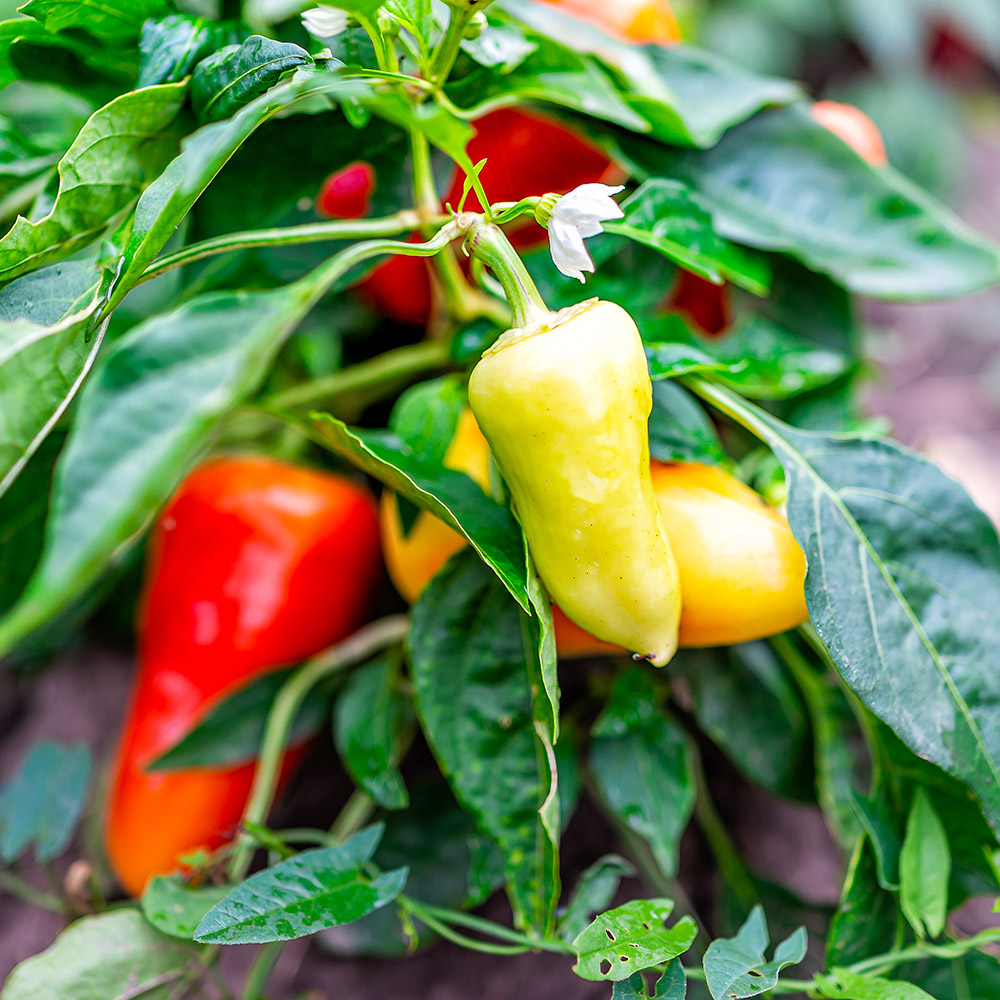Best Fertilizers for Peppers: A Comprehensive Guide to Increase Your Harvest
Wiki Article
Organic Vs. Synthetic Fertilizers: Which Is Best for Supporting Healthy Pepper Plants?
In the realm of nurturing healthy and balanced pepper plants, the choice in between synthetic and natural fertilizers stands as a pivotal choice with far-reaching implications. While both options purpose to supply vital nutrients to support plant development, the nuances of their influence on the soil, plant wellness, and the atmosphere stimulate a dispute that echoes throughout the gardening area. Understanding the distinctive benefits and prospective risks of each fertilizer kind is essential for pepper farmers looking for to optimize their returns while maintaining an eco-conscious and sustainable technique.Advantages of Organic Plant Foods
Organic fertilizers offer a lasting and environmentally-friendly method to nourishing pepper plants, supplying crucial nutrients without making use of artificial chemicals. These all-natural plant foods are acquired from natural resources such as garden compost, manure, bone meal, and algae, promoting soil health and biodiversity. Unlike artificial plant foods, organic choices launch nutrients slowly, guaranteeing a constant and well balanced supply for pepper plants to thrive.One considerable benefit of organic fertilizers is their capacity to boost dirt framework and water retention. By improving dirt wellness, organic plant foods promote beneficial microbial activity, which helps in nutrient uptake by pepper plants. Additionally, natural plant foods minimize the danger of chemical run-off, protecting water resources from pollution and safeguarding the environment.
Additionally, organic plant foods contribute to long-lasting dirt fertility by advertising the growth of useful soil organisms. These microorganisms aid damage down organic matter, releasing nutrients in a form that is quickly available to pepper plants. best fertilizers for peppers. By promoting a healthy soil community, organic fertilizers sustain sustainable pepper cultivation methods that profit both plants and the setting
Drawbacks of Synthetic Plant Foods
Synthetic fertilizers, in contrast to their natural counterparts, pose various downsides when utilized to nurture pepper plants, impacting both plant health and ecological sustainability. One significant downside of synthetic fertilizers is their propensity to seep nutrients from the soil promptly. This quick leaching can cause vitamins and mineral discrepancies in the dirt, creating plants to struggle with deficiencies or poisonings. Furthermore, synthetic fertilizers can hurt useful soil microorganisms, such as earthworms and advantageous germs, disrupting the soil ecological community's balance.Furthermore, the overuse of synthetic plant foods can add to water contamination. Excess plant foods not taken in by plants can clean away into water bodies, leading to eutrophication, where algae blooms deplete oxygen degrees in the water, hurting aquatic life. Artificial plant foods are normally obtained from non-renewable resources, such as fossil fuels, adding to carbon exhausts and environmental destruction throughout their production.
Nutrient Absorption Comparison
When contrasting artificial and organic fertilizers in terms of nutrient absorption, organic fertilizers have the benefit of offering a much more moved here balanced and slow-release source of nutrients. Organic fertilizers contain a variety of macro and micronutrients that are not only useful for the plants yet likewise advertise healthy soil microbial task, which assists in nutrient uptake.Additionally, natural fertilizers improve dirt structure and water retention capacity, permitting pepper plants to accessibility nutrients more successfully. This enhanced dirt top quality assists in origin advancement, making it possible for better nutrient absorption. Artificial check these guys out fertilizers, although originally increasing plant development because of their high nutrient concentrations, may prevent long-term nutrient absorption by derogatory dirt wellness gradually.
Ecological Effect Considerations

On the other hand, artificial plant foods, although usually more immediately available and focused to plants, can have detrimental results on the setting if not used appropriately (best fertilizers for peppers). Their manufacturing requires high energy inputs, leading to greenhouse gas emissions and contributing to climate change. The runoff of excess artificial plant foods can contaminate water resources, leading to eutrophication and damaging water ecological communities.
Ideal Plant Food Practices for Peppers
To accomplish this, it is crucial to follow ideal fertilizer methods tailored anonymous to the details requirements of pepper plants. One critical method is to perform a soil test prior to using any fertilizers.Another vital method is to fertilize pepper plants at the correct time. Generally, peppers gain from getting fertilizer at growing and then again when they start to blossom. Over-fertilizing can bring about nutrition imbalances and harm the plants, so it is crucial to comply with recommended application rates.
In addition, selecting a well balanced fertilizer with an NPK ratio that fits pepper plants' demands is fundamental. Ultimately, combining organic and artificial plant foods carefully can aid support healthy and balanced pepper plants while lessening environmental impact.
Conclusion

Organic plant foods supply a lasting and environmentally-friendly approach to beneficial pepper plants, offering crucial nutrients without the use of artificial chemicals. Unlike artificial plant foods, organic choices release nutrients gradually, guaranteeing a balanced and constant supply for pepper plants to grow.
Synthetic fertilizers, in contrast to their organic counterparts, present numerous drawbacks when used to nurture pepper plants, influencing both plant wellness and environmental sustainability. When contrasting synthetic and natural fertilizers in terms of nutrient absorption, natural fertilizers have the advantage of supplying a much more balanced and slow-release resource of nutrients.In addition, natural fertilizers improve dirt structure and water retention ability, allowing pepper plants to accessibility nutrients extra successfully.
Report this wiki page